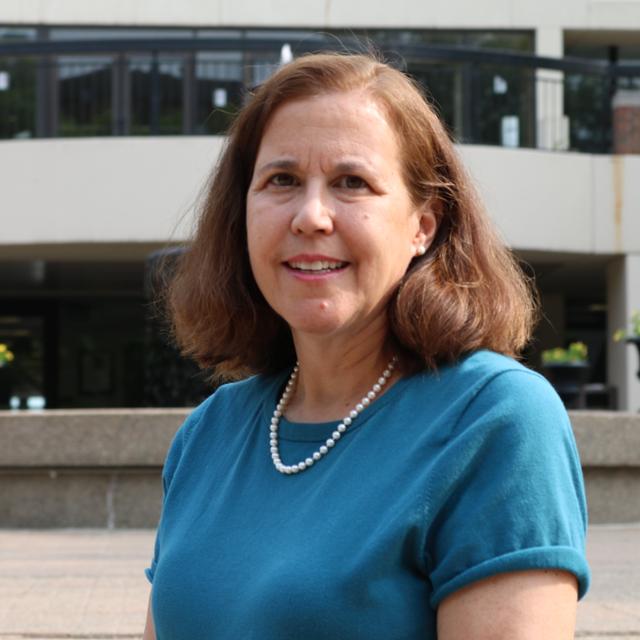Contact Information
Biography
Dr. Kimberly Williams is a distinguished figure in the field of biomedical engineering, holding the position of Associate Professor in the Department of Biomedical Engineering. With a strong academic background, Dr. Williams earned her degrees in Chemical Engineering, complemented by an experimental postdoctoral stint in Biochemistry at Boston University School of Medicine.
Her academic journey led her to the Department of Chemical Engineering at Virginia Tech, where she commenced her teaching career as an Assistant Professor. Throughout her tenure, Dr. Williams demonstrated exceptional dedication and expertise, earning promotion and tenure within the institution.
After a period spent pursuing other interests, Dr. Williams returned to academia in 2015, joining Duquesne University as an Adjunct before assuming a full-time role as Associate Professor in 2018. Her commitment to education and research is further underscored by her current role as chair of the MS program in Biomedical Engineering at Duquesne University. Dr. Williams continues to make significant contributions to the field, shaping the next generation of biomedical engineers through her teaching and leadership.
Education
- Ph.D., Chemical Engineering, University of Illinois at Urbana-Champaign
- Postdoc, Biochemistry, Boston University School of Medicine
- M.S.E., Chemical Engineering, University of Pennsylvania
- B.S., Chemical Engineering, Virginia Polytechnic Institute and State University
Research Interests/Expertise
- Cellular Bioengineering
- Tissue Engineering
- Cell Dynamic Modeling
Profile Information
About
- McNeeley, P.M., A.N. Naranjo, K. Forsten-Williams, and A.S. Robinson. (2017) “A2AR Binding Kinetics in the Ligand Depletion Regime” SLAS Discov 22:166-175.
- Carroll, J., M. Raum, K. Forsten-Williams, and U.C. Tauber. (2016) “Ligand-receptor binding kinetics in surface plasmon resonance cells: a Monte Carlo Analysis.” Phys.Biol. 13:066010 doi: 10.1088/1478-3975/13/6/066010.
- Fannon, M., K. Forsten-Williams, B. Zhao, E. Bach, P. Parekh, C.L. Chu, A.L. Goerges-Wildt, Y. Shing, and M.A. Nugent. (2012) “Facilitated diffusion of VEGF165 through Descemet’s membrane with sucrose octasulfate.” J. Cell. Physiol. 227:3693-2700
- Forsten-Williams, K., E. Kurtagic, and M. A. Nugent. (2011) “Complex receptor-ligand dynamics control the response of the VEGF system to protease injury”. BMC Systems Biology. 5:170.
- Zhao, B., C. Zhang, K. Forsten-Williams, J. Zhang, and M. Fannon. (2010) “Endothelial cell capture of heparin-binding growth factors under flow”. PLOS Computational Biology. 10.1371/journal.pcbi.1000971
- Shen, W., C. Zhang, M. Fannon, K. Forsten-Williams, and J. Zhang. (2009) “A computational model of simulating competitive growth factor binding under flow”. IEEE Transactions on Biomedical Engineering 56:2147-2155.
- Mitsi, M., K. Forsten-Williams, M. Gopalakrishnan, and M.A. Nugent. (2008) “A catalytic role for heparin within the extracellular matrix” J.Biol. Chem. 283:34796-34807.
- Forsten-Williams, K., C.L. Chu, M. Fannon, J.A. Buczek-Thomas, and M.A. Nugent. (2008) “Control of growth factor networks by heparan sulfate proteoglycans”. Ann. Biomed. Eng. 36:2134-2148.
- Ghosh, S., M. Gopalakrishnan, and K. Forsten-Williams. (2008) “Self-consistent theory of reversible ligand binding to a spherical cell” Phys. Biol. 4:344-354.
- Starr, T., K. Forsten-Williams, and B. Storrie. (2007) “The key rate limiting step
determining GPP130 localization is Golgi retention” Traffic 8:1265-1279.
- Virginia Tech College of Engineering Faculty Fellow (2003)
- DuPont Young Professor Award Recipient (2000)
- NSF Career Awardee (1999)
- FMSG:BIO: Integrating Artificial Intelligence with Bioprinting for Future Manufacturing of Organoids; NSF collaborative grant with University of Pittsburgh


